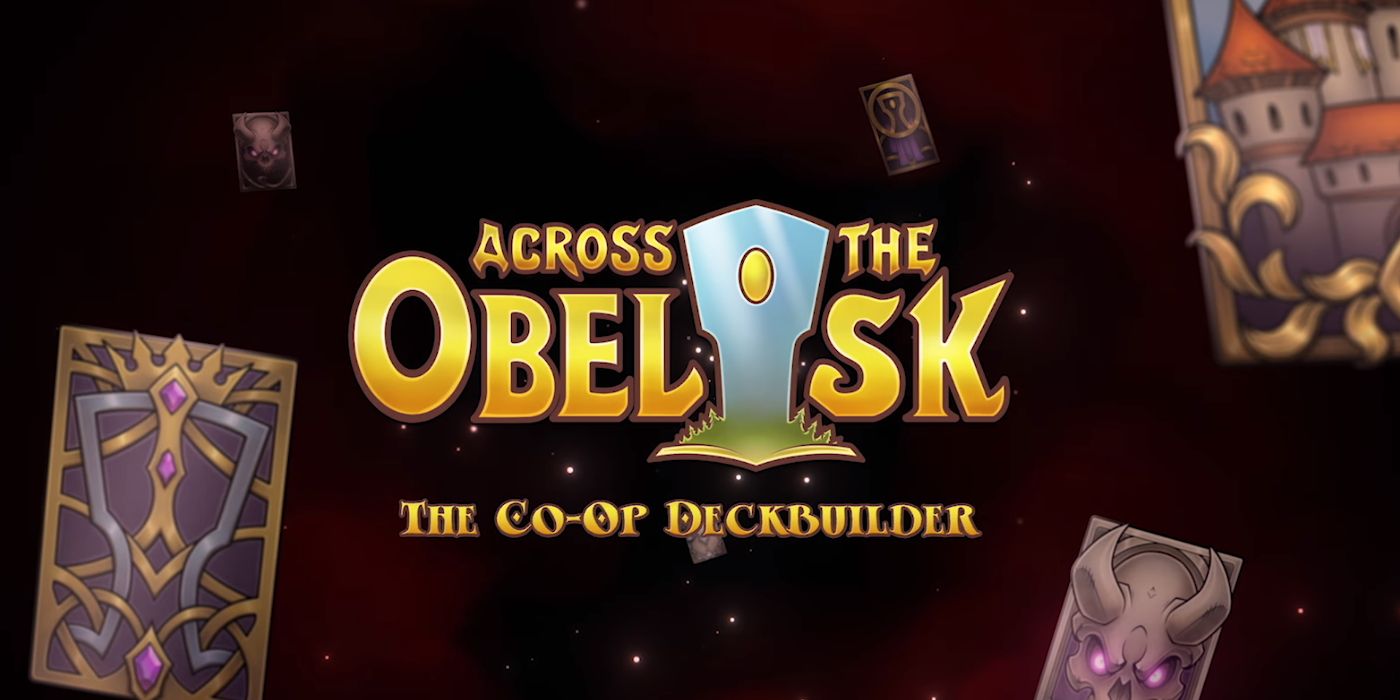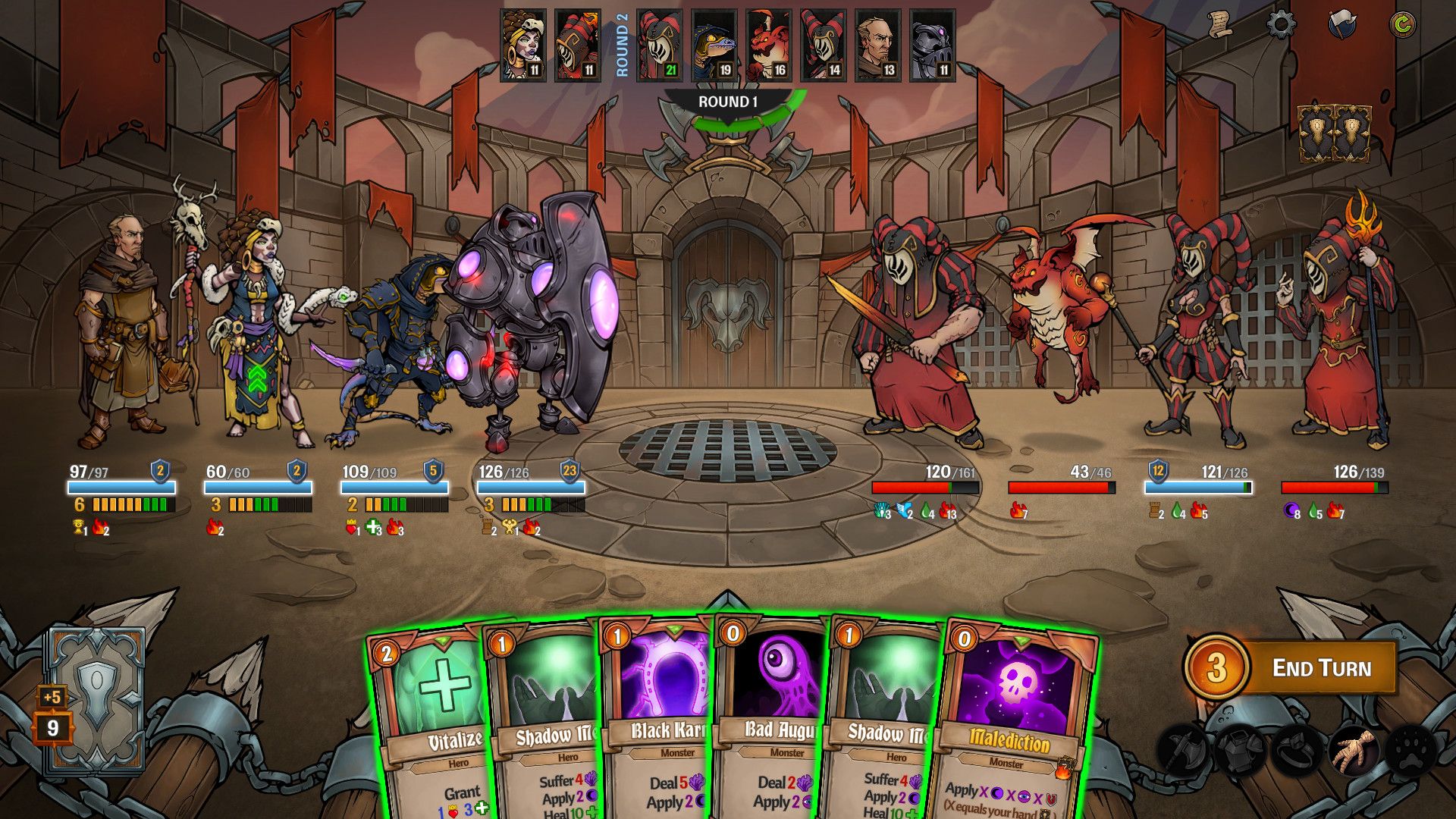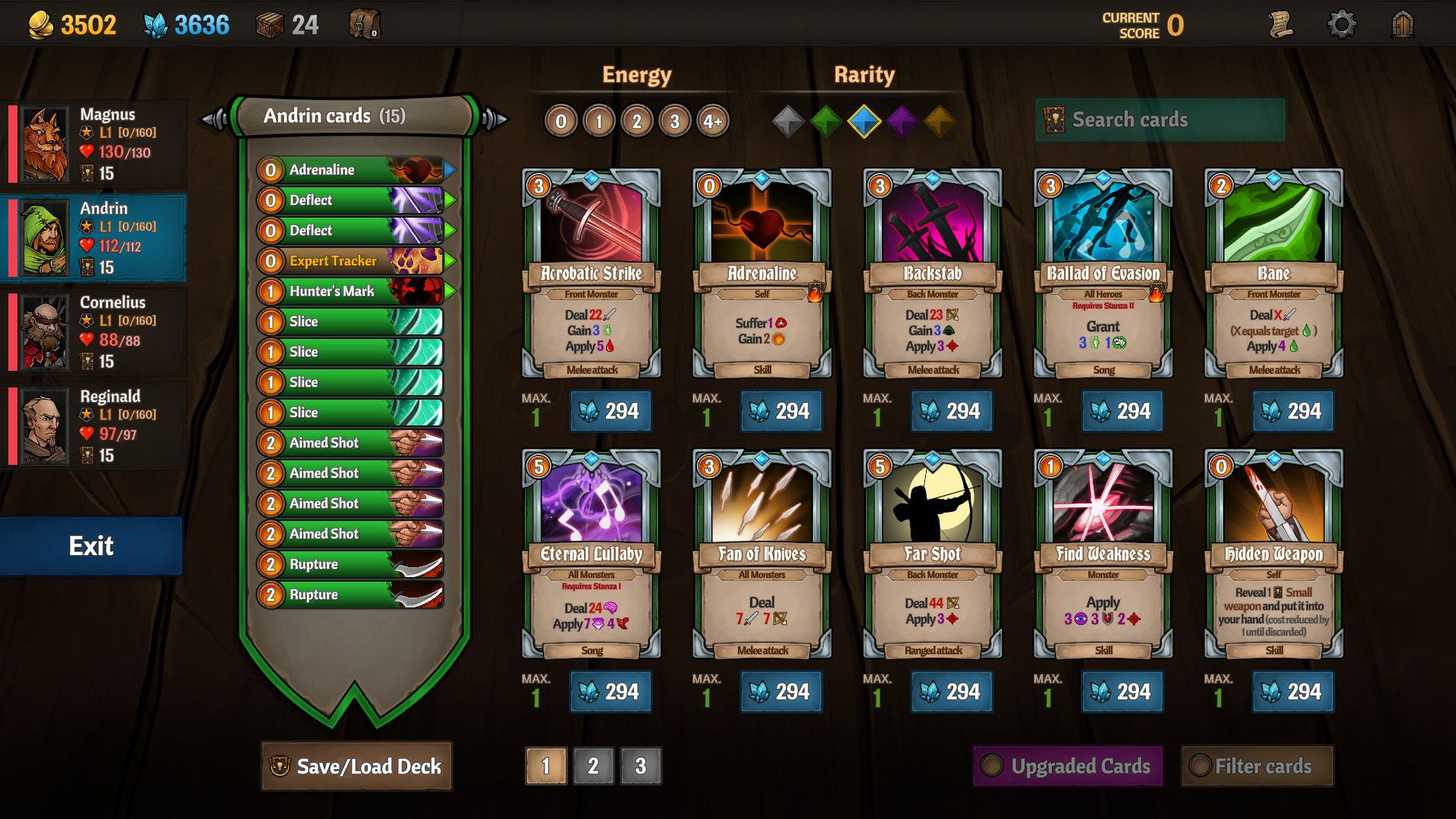Across the Obelisk is a co-op deckbuilding roguelite from developer Dreamsite Games and publisher Paradox Arc. While it's been available in early access for quite some time, it's 1.0 launch has finally been rolled out, representing a finished base product. What's here is a solid experience for fans of the genre, though there are a few caveats - namely, Dungeons & Dragons fans shouldn't be expecting much in the way of a story, while deckbuilding veterans shouldn't expect the same depth of strategy that's present in titles like Slay the Spire or even Monster Train.
Across the Obelisk initially follows four generic adventures setting out to unravel an equally archetypal fantasy plot, complemented by tropes like the kidnapped princess and the power-hungry mage. It is, generously, the most basic of stories, with room for player interpretation that I have to imagine was intended for co-op roleplaying to expand on the events happening on screen. In practice, however, the story is never so deep or interesting that it's compelling to attempt to expand upon it with player input. While the narrative is never outright bad, it's definitely forgettable, which hampers the appeal of the multiple choices and characters available to play with.
Luckily, while the playable heroes aren't that interesting in terms of their personalities, their uniqueness is expressed in their power-ups and deckbuilding options. The four classes - warrior, ranger, wizard, cleric, essentially - each feature unlockable heroes that completely alter the way teams can be composed. This is often the most fun to be had in Across the Obelisk, putting together puzzle pieces across multiple classes to finally find a build that works.
Working builds aren't easy to come by at first, either. Across the Obelisk also nails one of the most delicate elements of roguelite deckbuilders, creating a good sense of scaling power balanced with content that is hard enough to shut down early attempts and force players to learn intricacies and acquire starting bonuses. It's a testament to the accessibility of Across the Obelisk that multiple tries stymied by the same boss still results in a desire to beat them, equipped with more knowledge and less mistakes in deckbuilding the next time.
While combat in Across the Obelisk is good and varied, it's also not that innovative. Cards don't leave much to the imagination, there's really only so many archetypes per role once a player has sunk a half-dozen hours into the game, and the battles themselves tend to take a huge amount of time as a player's journey progresses. It's not uncommon for battles to be decided within the first few turns, but because Across the Obelisk really wants its heroes to heal themselves before a battle ends, they can slog on until the turn cycle ends favorably. Battles are also just a bit too spongy right now, with high HP enemies and not enough ways to chunk their health down quickly.
Across the Obelisk also has some builds that work excellently, and the rest just don't compare. It's fun finding them, but once they're apparent, there's little reason to do anything else. In fact, as the game gets progressively harder and players increase the difficulty of their runs, the scope of available builds narrows so much that it begins to feel unproductive. Mid-run adjustments just don't happen enough compared to other titles in the genre - legendary items are either blatantly great with an on-theme strategy or useless, and there's not enough incentive to pivot. That can be a blessing - knowing that a run won't be at the mercy of finding a great weapon for a build - but also makes things much less exciting, with too much falling into the realm of certainty and too little tension in battles as a result.
All of that being said, however, there's something at the core of Across the Obelisk that makes it fun, which is the primary goal of any replayable title like this one. Sure, strategies can narrow and battles can drag out, but finding the perfect combination of party members and obliterating everyone in the heroes' path is still entertaining. Unlockables like new appearances for each hero and skill trees that get buffed the more they're taken on journeys keep things interesting for long enough that multiple playthroughs in a day don't feel egregious, but there's a caveat there, too - Across the Obelisk runs take forever, especially in co-op. In single-player, a deep run can take hours, while with multiplayer it can take even longer as people chat and take time to input their turn.
Overall, Across the Obelisk is a fun deckbuilding roguelite that doesn't measure up to the genre's greats. Its innovations aren't really that interesting and the rest is pretty standard, which isn't a knock against the game, since it executes on that vanilla approach well. It does mean that Across the Obelisk is less likely to suck players into dozens of hours of playthroughs, but it's worth a try for fans of the deckbuilding roguelite genre. I can't see myself going back right now when Slay the Spire and Roguebook offer much more depth, but I enjoyed my stay with Across the Obelisk, and if there are any major updates, I'll get my party back together for another journey.
Across the Obelisk is available now on PC. Screen Rant was provided with a PC code for the purpose of this review.



